What is GST?
The Goods and Services Tax is a federal tax levied on both products and services. Currently set at five per cent, it is charged in all provinces and territories in Canada, either by itself or included as part of provincial sales tax (PST) or of a consumption tax known as harmonized sales tax (HST). Not all provinces charge PST or HST. Depending on the province in which you do business, you may need to charge GST, HST or a combination of GST and PST. For the purpose of this article, however, we’ll discuss the law as it applies to GST in Alberta.
“Should my small business charge GST?” is a common question among new business owners. Knowing where to start can be confusing, particularly when it comes to tax law and government matters. The success of your business depends on your understanding of how taxes, and especially the Goods and Services Tax (or GST), apply to you. Incorrect filing of corporate taxes can have serious legal implications.
When Do I charge GST?
If your business grosses over $30,000 per year, you must charge and remit GST. Your business may not generate this revenue at the beginning, in which case you would be deemed a small supplier and do not have to charge GST.
As you near the $30,000 threshold, you may choose to charge GST to save having to remit it at the end of the year. When filing their corporate taxes, small businesses that charge GST can claim any GST paid on business expenses as an input tax credit.
To learn more about whether your business should charge GST, visit the Canada Revenue Agency (CRA) website.
When am I Exempt from Charging GST?
Unless they qualify as exceptions, most businesses in Canada must charge GST. Exceptions fall under two categories:
- small suppliers
- purveyors of zero-related supplies and/or of GST-exempt good and services
Businesses falling in one of these two categories are not required to charge, collect and remit GST.
Small suppliers
Any business whose annual revenue before expenses is less than $30,000 is considered a small supplier. Small suppliers are not required to charge GST. Where annual gross is less than $30,000, charging GST is voluntary.
Zero-related supplies
Zero-related supplies are any goods and services taxable at a rate of zero per cent. They include
- exports
- basic groceries
- prescription drugs
- select medical devices
- some agricultural and fishing products
Registered businesses don’t have to collect GST for these types of supplies; however, they can claim an input tax credit on the GST paid to provide zero-related supplies.
GST-exempt goods and services
Some goods and services are exempt from GST, including
- legal aid services
- used residential housing
- many educational services
- select health, medical and dental services
If your business provides only GST-exempt goods and services, you cannot register for GST.
How do I charge GST?
Businesses charging GST must first register for a GST business account number with the federal government. When you register for GST, you’ll need to know your effective date of registration. This date depends on whether your registration is mandatory or voluntary.
You can register for a GST business account number online, by phone, or by mail or fax.
Online GST registration
There are several benefits to registering online.
- One-stop service
The online service allows you to register for key CRA program accounts, as well as some provincial accounts, at the same time—all from the comfort of your home or office, with options outside of business hours. This saves time and effort, especially for new business owners, who have endless things to do. - Easy to use
Helpful pop-up messages and alerts guide you through the online registration process and let you know when information is incorrect or missing. - Secure
You can register online, knowing that security measures protect your private information.
GST registration by phone
Register by calling 1-800-959-5525 toll-free.
GST registration by mail or fax
Register for a GST business number by filling out form Form RC1, Request for a business number and certain program accounts. Mail or fax the completed form to your local tax centre.
Remitting GST
When remitting GST, you’ll need to include your sub-total, GST amount, total on all invoices and your GST account number. Keep a record of the GST you charge and the money remitted to the government.
Since it is not part of your revenue stream, you must keep records of the GST paid on business expenses to claim it as an input tax credit.
Although dealing with GST may seem daunting initially, it is a straightforward process once you know the basics. Lift Legal is happy to address questions or concerns you may have about business law. Contact us today as you embark upon your small business journey.













